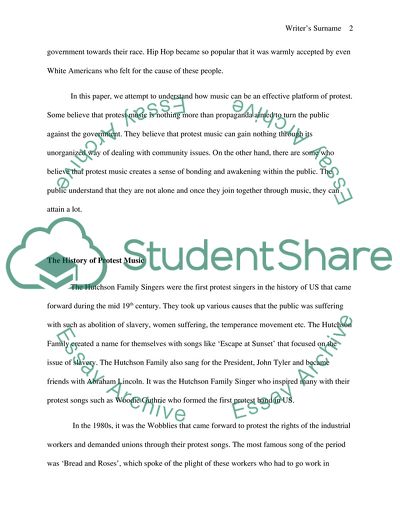Cite this document
(“MUSIC AS AN EFFECTIVE PLATFORM FOR PROTEST Essay”, n.d.)
MUSIC AS AN EFFECTIVE PLATFORM FOR PROTEST Essay. Retrieved from https://studentshare.org/english/1580251-music-as-an-effective-platform-for-protest
MUSIC AS AN EFFECTIVE PLATFORM FOR PROTEST Essay. Retrieved from https://studentshare.org/english/1580251-music-as-an-effective-platform-for-protest
(MUSIC AS AN EFFECTIVE PLATFORM FOR PROTEST Essay)
MUSIC AS AN EFFECTIVE PLATFORM FOR PROTEST Essay. https://studentshare.org/english/1580251-music-as-an-effective-platform-for-protest.
MUSIC AS AN EFFECTIVE PLATFORM FOR PROTEST Essay. https://studentshare.org/english/1580251-music-as-an-effective-platform-for-protest.
“MUSIC AS AN EFFECTIVE PLATFORM FOR PROTEST Essay”, n.d. https://studentshare.org/english/1580251-music-as-an-effective-platform-for-protest.


